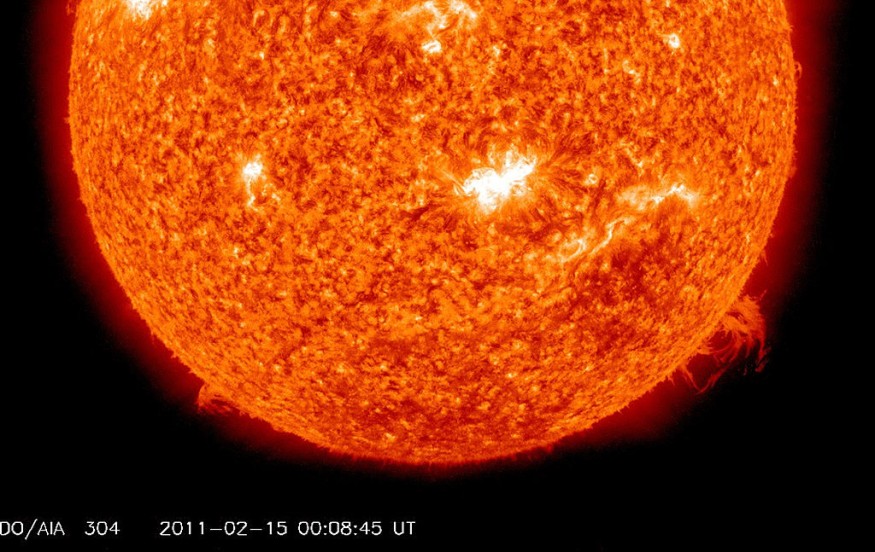A SOLAR storm is expected to "side-swipe" this week which might result in beautiful auroras.
Metro pointed out that mild to moderate geomagnetic storms are possible due to solar radiation "cannibal" ejections on Wednesday and Thursday.
Beautiful dancing lights may be seen farther south than usual, and some technology may malfunction.
Solar Storm to Hit Earth This Week
On Wednesday and Thursday, solar activity may cause the northern lights to shine across northern U.S. states when Earth receives a hit from a cloud of plasma.
A coronal mass ejection (CME), the name for the plasma cloud, was released from the Sun on Sunday. Since then, the charged gas cloud has been hurdling itself toward Earth.
After Sunday's CME was discovered, the Space Weather Prediction Center (SWPC) of the U.S. National Oceanic and Atmospheric Administration (NOAA) posted on its website on Monday that G1 (minor) and G2 (moderate) storm watches were in effect for Wednesday and Thursday, respectively.
Space organizations have sent out a solar flare notice, warning that a disturbance on the Sun's surface near sunspot AR3076 might trigger a massive solar storm that could affect Earth. It suggests that the world may soon experience a severe disturbance.
Sunday's solar flalre also produced a significant explosion that was captured by NASA. A solar storm may soon strike the globe after NASA's Solar Dynamics Observatory detected the solar flare on Sunday around 4 p.m.
"Traveling faster than 600 km/s (1.3 million mph), the plume tore through the Sun's outer atmosphere, creating a coronal mass ejection (CME)," Spaceweather.com (via reports).
"Newly updated images from the Solar and Heliospheric Observatory (SOHO) confirm that the CME has an Earth-directed component."
When a solar flare starts a geomagnetic storm, it can occasionally seriously interrupt systems on Earth. On Aug. 17, a geomagnetic storm may occur on Earth, according to satellite organizations.
GPS and amateur radio reception may be impacted by this week's solar activity, according to specialist Dr. Tamitha Skov on Twitter.
Our #Sun gets busy with four big-flare players, multiple Earth-directed #solarstorm launches & fast solar wind. Strong #aurora possible to mid-latitudes August 17-18 with G1-G2 storm levels. Expect disruptions to amateur #radio & #GPS reception, especially on Earth's night side. pic.twitter.com/Lkkqk7wmCG
— Dr. Tamitha Skov (@TamithaSkov) August 15, 2022

CMEs to Create Auroras in Northern US
CMEs can lead to certain problems, but they can also produce breathtaking auroras. The interaction of solar particles with Earth's magnetic field results in auroras.
The northern lights can also appear at considerably lower latitudes than typical due to the massive magnetic disruptions that CMEs can produce.
Depending on how powerful the CME turns out to be, auroras may be visible "as low as New York to Wisconsin to Washington state" on Wednesday and Thursday, according to the SWPC (via Newsweek).
There's also a chance that the auroras won't be seen because of cloud cover, light pollution, or because they won't happen at night. The SWPC did not offer information on precise times.
RELATED ARTICLE: Solar Flare Warning: NASA Says Geomagnetic Storm From Sun May Weaken Power Grids on Earth Again on Wednesday
Check out more news and information on Space in Science Times.












